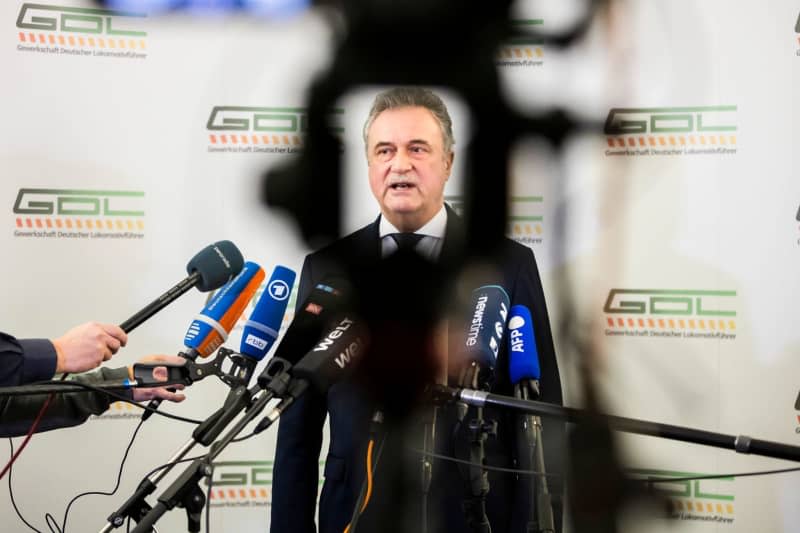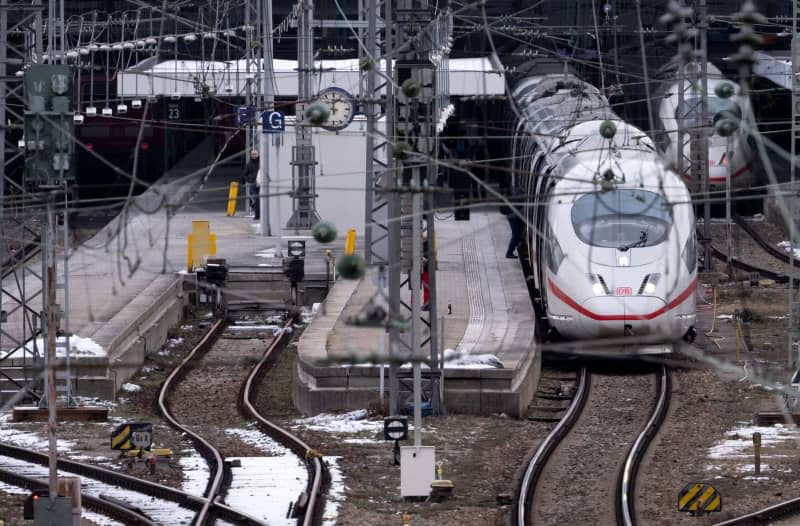Looming six-day German train strike to cause massive disruptions

German national railway Deutsche Bahn has warned of massive travel disruptions after the train drivers' union GDL announced a six-day strike.
The strike will begin on Wednesday at 2 am (0100 GMT) and continue until 6 pm on January 29, GDL said in a statement released in the early hours of Monday.
Union members at DB Cargo, which is responsible for freight transport, had already been called to strike from 6 pm on Tuesday.
Deutsche Bahn said an extremely limited emergency timetable of long-distance trains and local commuter S-Bahn rail service would continue through the strike, but warned of major disruptions throughout the country.
The railway said that longer trains with more seats will be used "in order to get as many people as possible to their destination," and that passengers are free to use tickets booked for the strike period at a later date instead.
Deutsche Bahn criticized the strike declaration, but the state-owned company said it would not seek court action to block the strike.
Earlier this month, Deutsche Bahn saw its request for an injunction to stop an earlier, shorter GDL strike rejected by a labour court in Frankfurt.
Union leader Claus Weselsky on Monday defended the strike call "lawful, proportionate and permissible."
He also criticized Deutsche Bahn's latest offer in collective bargaining talks.
"We can read. We know what is written there. And it is not a basis for entering into negotiations with DB," Weselsky said.
Deutsche Bahn board chairman Richard Lutz criticized the union on Monday, accusing Weselsky and the GDL of "intesifying the conflict" and "focusing exclusively on escalation" instead of searching for compromise.
"Instead of finally negotiating, the GDL is plunging into the next long strike, from which the whole country is suffering," said Lutz.
German Transport Minister Volker Wissing, a member of the liberal conservative Free Democrats (FDP), also criticized the union, saying he had "zero understanding" for their approach to collective bargaining.
German Chancellor Olaf Scholz expressed hope on Monday for a quick settlement to the wage dispute between Deutsche Bahn and the GDL union, and maintained his call for an amicable agreement.
But a spokesman for Scholz stressed that the chancellor would not interfere in the labour fight and respects the autonomy of collective bargaining in Germany.
On Friday, Deutsche Bahn presented a new wage offer to bring the GDL back to the negotiating table. It includes an option for one hour less working time for train drivers and train attendants from January 1, 2026. The offer also included a 4.8% pay rise for employees from August and a further 5% from April 2025.
However, this was not enough for new negotiations. "With the third and allegedly improved offer, Deutsche Bahn AG has once again shown that it is continuing to pursue its previous course of refusal and confrontation undeterred - there is no sign of a willingness to reach an agreement," the GDL statement said.
Weselsky has stuck to a core demand that weekly working hours be reduced to 35 hours for full pay. Several smaller rail operators have agreed to the union's demands, although those agreements contain clauses that would take back the concessions if Deutsche Bahn wins more favourable terms from the union.
This will be the fourth strike in the current wage dispute between the GDL and Deutsche Bahn. Before the turn of the year, the GDL paralysed large parts of passenger transport in two strikes, followed by a three-day strike with a similar effect in January.


